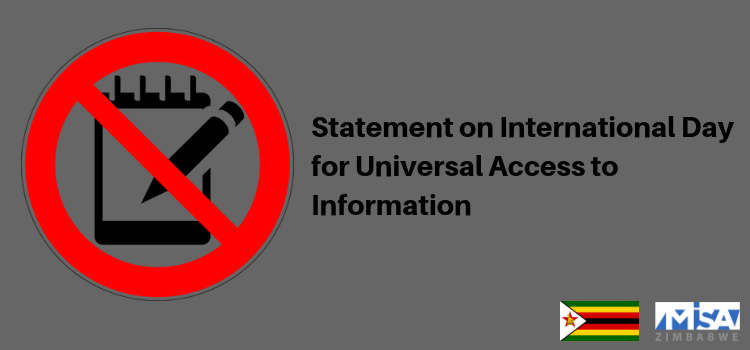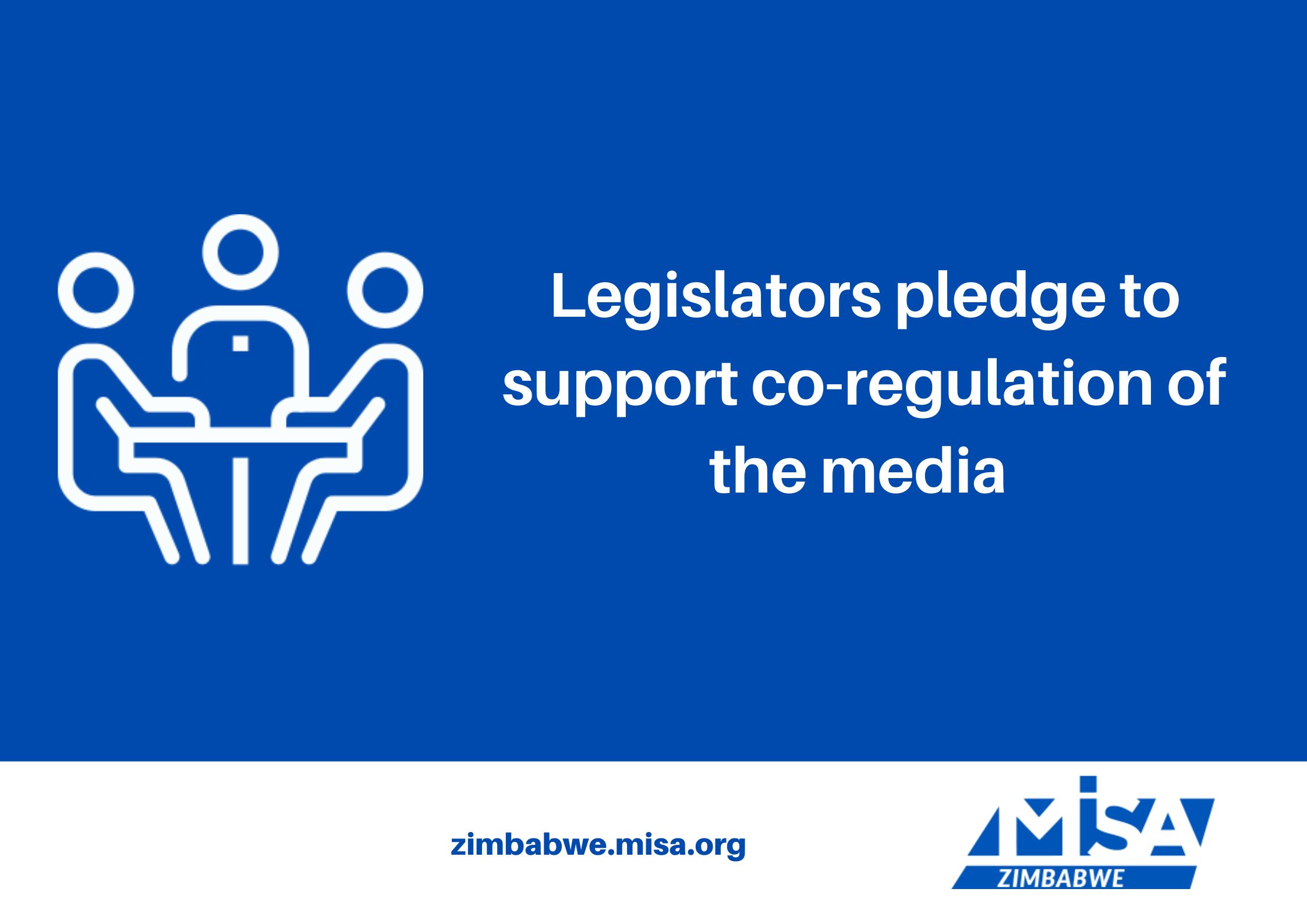This year’s International Day for Universal Access to Information marked annually on 28 September comes at a time when Zimbabwe’s public institutions are still far from fulfilling their roles as holders of information that should be released upon request and in the public interest.
The opaqueness and secretive nature of the country’s public institutions as revealed in surveys conducted by MISA Zimbabwe over the years risks standing in the way of President Emmerson Mnangagwa’s “Zimbabwe is open for business” mantra.
Business invests and thrives in an environment where relevant information is readily available as opposed to situations where requests are subjected to tedious bureaucratic processes or worse still, not being responded to.
Section 62 of the Constitution guarantees democratic access to information. However, the continued existence of restrictive laws such as the Access to Information and Protection of Privacy Act (AIPPA) and Official Secrets Act (OSA), among others, erode the guarantees enshrined in the Constitution.
The continued discord between legislation and the Constitution goes beyond being a rights issue because it also affects Zimbabwe’s business prospects on the global stage. For instance, Section 65 of AIPPA restricts foreigners from owning mass media services (mass media services include print and broadcast media which are intended to be read, seen or heard, as the case may be, by an unlimited number of people).
In addition, AIPPA restricts access to information to only information that is held by public entities.
Furthermore, the data protection provisions found in AIPPA are insufficient when tested against the European Union’s current General Data Protection Regulations. These insufficiencies make Zimbabwe an unattractive destination for data and information, thus effectively counteracting government efforts in opening Zimbabwe to business.
Information assists citizens as well as business in making informed decisions and choices on matters affecting their lives and operations. This entails proactive public interest disclosure of information to instil transparency and accountability in public institutions.
Regrettably, requests for information by MISA Zimbabwe from various public institutions under the annual MISA Regional Transparency Assessment surveys point to a culture of inefficiency and entrenched secrecy in public institutions. Results of the surveys which are released on the International Day for Universal Access to Information, analyse the ease or difficult with which the public can access relevant information.
In that regard, the Parliament of Zimbabwe emerged as this year’s most open and transparent institution while the Postal and Telecommunications Regulatory Authority of Zimbabwe is the most closed and secretive institution.
MISA Zimbabwe, therefore, urges the government to repeal AIPPA as a matter of urgency and as mandated by the Constitution which states that legislation must be enacted to give effect to the enjoyment of the right to access to information.
In doing so, the government should be guided by the African Platform on Access to Information Declaration and African Charter on Human and Peoples Rights Model Law on Access to Information in Africa.
End
Golden Maunganidze
Chairperson
MISA Zimbabwe












